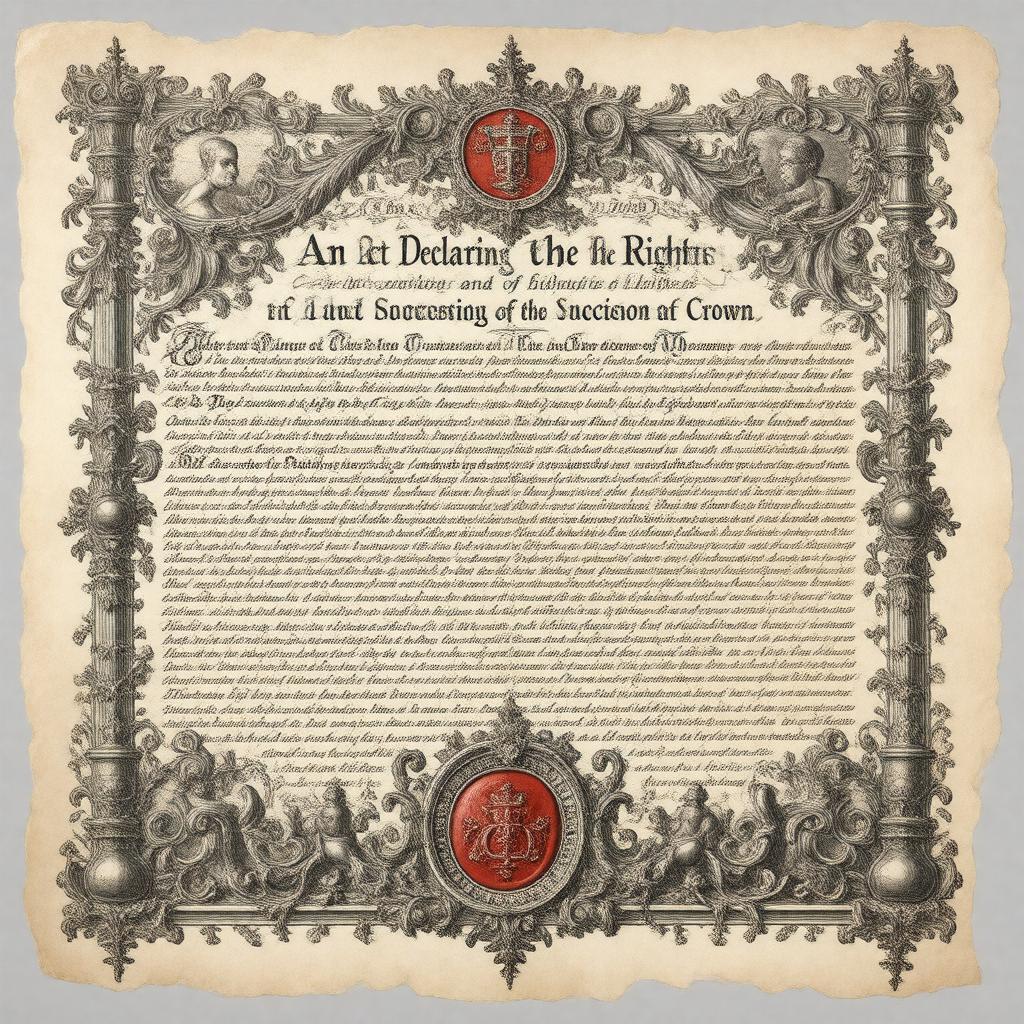Prompt
"Create an image of a formal, historic document with the title 'An Act Declaring the Rights and Liberties of the Subject and Settling the Succession of the Crown' displayed prominently, surrounded by ornate 17th-century English typography and decorations, with a red wax seal bearing the royal insignia of William III and Mary II, set against a backdrop of the Palace of Westminster, signifying the document's significance in English constitutional law and its role in limiting the powers of the monarch and affirming the rights of Parliament, dated 1689."

